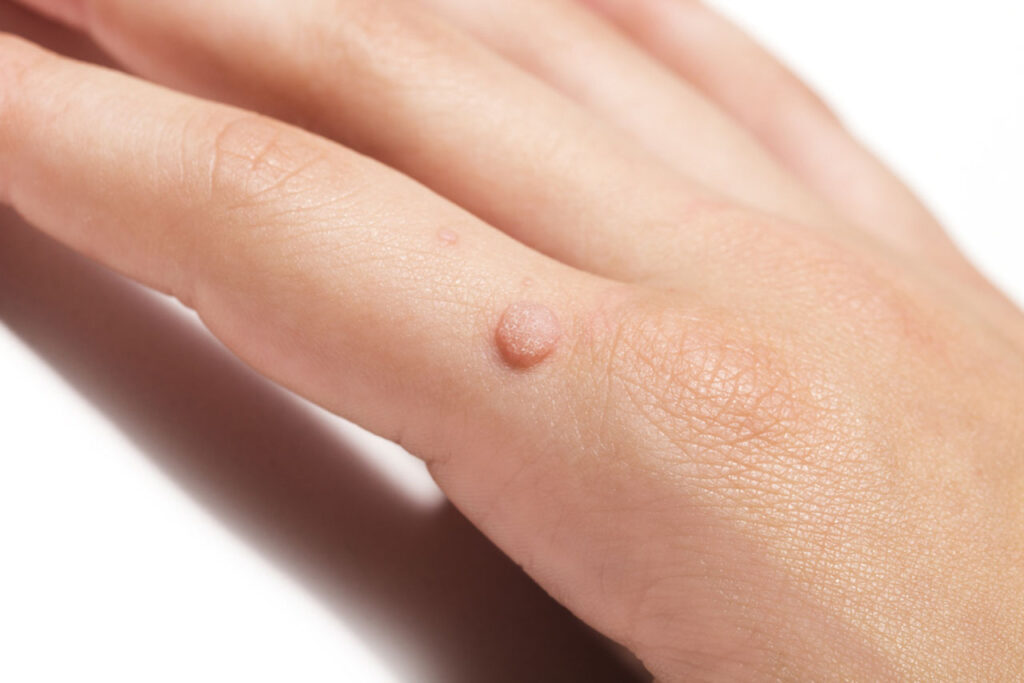
What are warts?
Warts are a prevalent yet bothersome type of skin growth that can manifest on various areas of the body, such as the feet, face, legs, and genitals. Warts can be fairly embarrassing and unsightly, but are usually harmless. Over-the-counter options can help remove warts, but often patients require the help of a medical professional, such as Board Certified Dermatologist Dr. Solomon Brickman of Houston.
Based upon your particular situation, Dr. Brickman may recommend one or multiple treatment options for warts and other undesirable skin growths.
What causes warts?
The human papillomavirus (HPV) is the primary cause of warts. HPV has various strains, including those that are not transmitted by sexual contact.
These skin growths are commonly transmitted through direct skin-to-skin contact between individuals. Additionally, warts can be acquired by coming into contact with objects contaminated with HPV, such as exercise equipment or towels. Warts are more likely to develop if there is a cut or abrasion in the skin, which makes areas regularly subjected to shaving, such as the face, legs, or underarms, particularly vulnerable to infection.
Although HPV exposure is common among individuals, not everyone who encounters the virus will develop warts. This discrepancy is attributed to variations in our immune systems. It is hypothesized that individuals with specific immune system irregularities may be more susceptible to developing warts.
What are my options for having warts removed?
While over-the-counter medications are always available, their effectiveness is limited. Dr. Brickman may recommend the following medically supervised options:
- Laser surgical removal of warts
- Freezing
- Prescription medications
Let’s look at each of these treatment options:
Surgery
Laser wart removal surgery involves using a laser to remove the base of the wart, targeting its roots and ensuring thorough removal. Typically the wart falls off between 1-2 weeks post-op.
Freezing
Cryotherapy is a procedure used to completely freeze off warts. Conducted at the clinic, the process may cause some discomfort during freezing. Depending on the size of the wart, it may require more than one treatment session.
Prescription Wart Medications
For treatment, medications can be injected into the wart or applied topically to target and eliminate the virus responsible for the wart. Examples of such medications include bleomycin and imiquimod, among others. It will take 2-3 weeks before the wart blisters and falls off. Like freezing, multiple treatments may be needed.
How do I keep warts from spreading from person to person?
Dr. Brickman will recommend several methods to prevent warts from spreading due to the contagious nature of HPV. This will include:
- No picking or scratching your wart
- Wearing shoes in public if the wart is on your foot
- Keeping the wart dry
- Do not let anyone touch your wart except for a medical professional or your caregiver
What are other things to consider with a wart?
Dr. Brickman strongly recommends that:
- You do not ever, ever, try cutting your wart off. Not only can doing so lead to further injury; you exponentially increase the risk of spreading the wart. Remember, warts are caused by a virus and viruses are susceptible to spreading.
- If you have a “dead” wart—that is a wart that has been successfully treated—use a wet washcloth or pumice stone on pre-soaked skin to scrub the wart off. You should pre-soak your skin for 10 minutes in warm water to soften the skin and make it easier to remove the dead skin.
If you have warts, Dr. Brickman can help
For over 40 years, Dr. Solomon Brickman has treated Houston-area patients for various skin conditions, including warts. His expertise in crafting the right treatment options for each patient is unparalleled. Contact the Houston Laser Skin Center today for a skin examination and treatment plan for your wart removal.
